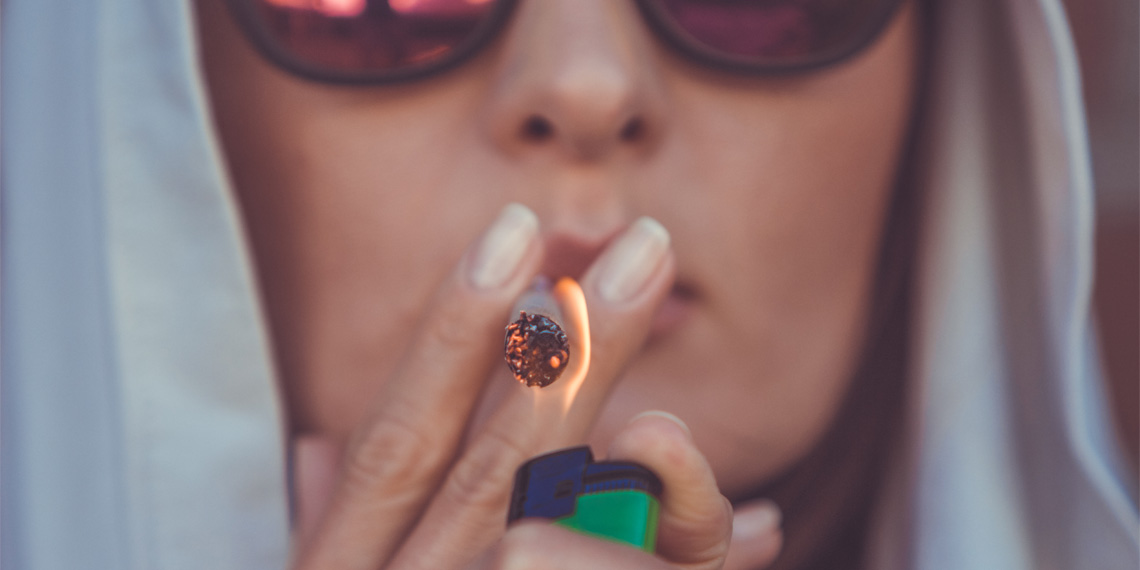A study conducted using data from the 2020 National Survey on Drug Use and Health has found that individuals reporting serious psychological distress are more likely to be users of cannabis. Both moderate and serious levels of psychological distress were associated with elevated risks of cannabis use disorder. The study was published in the Journal of Psychoactive Drugs.
Cannabis, also known as marijuana, is a psychoactive plant that contains compounds known as cannabinoids. The two most well-known cannabinoids are tetrahydrocannabinol (THC) and cannabidiol (CBD). THC is responsible for the plant’s psychoactive effects, producing the “high” sensation, while CBD does not produce intoxication and is believed to have various potential therapeutic benefits. The legality of cannabis varies across different countries and regions. It can be consumed by smoking, vaporizing, or ingesting products such as edibles, oils, or tinctures.
Problematic and compulsive use of cannabis can lead to the development of the cannabis use disorder. This condition is classified as a mental health disorder and is associated with impaired control over cannabis consumption, leading to disruptions in daily life, relationships, and responsibilities.
The share of population suffering from cannabis use disorder and the consumption of cannabis in general have been steadily increasing over the past two decades as more states decriminalized or legalized the use of cannabis. This has also been helped by the fact that the perception of risks of cannabis use has decreased in the general population and the attitudes towards its use became more permissive.
However, studies conducted on the topic found little evidence of cannabinoids improving mental health. Rather, heavy and frequent use of cannabis has significant negative mental health implications. Study results very firmly link the use of cannabis to a four-fold increased risk of psychosis for the heaviest users and a two-fold increase in risk for average users compared to non-users. Cannabis use was found to be higher among individuals with depression and anxiety. Other adverse health effects have been reported as well.
Study author Namkee G. Choi and her colleagues wanted to examine the associations between psychological distress, mental illness, cannabis use frequency, and cannabis use disorder among adult cannabis users. They were particularly interested in associations between cannabis use and psychological distress. Their expectation was that higher frequencies of cannabis use would be associated with moderate and serious psychological distress.
Psychological distress refers to a broad range of emotional and psychological symptoms that can cause significant discomfort or suffering in an individual. It may include feelings of anxiety, depression, sadness, anger, or other negative emotions that interfere with a person’s ability to function well in their daily life.
The researchers analyzed data from the 2020 National Survey on Drug Use and Health. This dataset contained responses from 32,893 individuals who completed the survey in-person or online. The researchers only examined the responses of respondents who were above 18 years of age, because this survey did not ask minors about psychological distress and mental disorders. This reduced the number of respondents who could be analyzed to 27,170.
From the survey dataset, the study authors used data on psychological distress (the Kessler-6 Screen), past-year cannabis use status, age of first use, reasons for use, use frequency, cannabis use disorder and its severity (assessed by applying clinical diagnostic criteria to the data on cannabis use), use of other substances or other use disorders, past-year mental health treatments, past-year mental illness, and various demographic data.
The results showed that 74% of participants experienced no psychological distress. Among those reporting distress, equal proportions (13%) experienced severe and mild-moderate levels. Notably, 52% of participants with serious distress were under the age of 35, and this group included more women, unemployed individuals, and those with income below $20,000. Additionally, over 90% of those with serious distress and about half of those with mild-moderate distress had mental illness.
About 18% of participants reported using cannabis in the past year. Cannabis users were more prevalent among those with mild-moderate and serious distress compared to those with no distress. The serious distress group also had the highest proportion of frequent users and individuals with cannabis use disorder.
“In conclusion, our study brings to light the significant positive associations between psychological distress and cannabis use frequency among US adults and between psychological distress and cannabis use disorder among cannabis users. Young adults are the group most affected by psychological distress, cannabis use, and cannabis use disorder. The study also shows the significant associations of psychological distress with other substance use/use disorders. Given cannabis’ easy availability/ accessibility due to legalization in increasing numbers of states, the prevalence of cannabis use and cannabis use disorder is likely to increase,” the study authors wrote..
The study makes an important contribution to the scientific understanding of psychological underpinnings of cannabis use. However, it also has limitations that need to be taken into account. Notably, due to different data collection methods, researchers could not compare the 2020 data with previous years. Therefore, it remains unknown whether the report numbers are the same or different compared to previous years. Additionally, the data are based on self-reports and reporting on cannabis and substance use may have been affected by social desirability bias.
Finally, the study cannot establish causality. It’s possible that people experiencing psychological distress may turn to cannabis as a coping mechanism, which could explain the association. On the other hand, cannabis use might lead to increased psychological distress due to its effects on mood and cognition.
The study, “Psychological Distress, Cannabis Use Frequency, and Cannabis Use Disorder Among US Adults in 2020”, was authored by Namkee G. Choi, C. Nathan Marti, Diana M. DiNitto, and Bryan Y. Choi.

